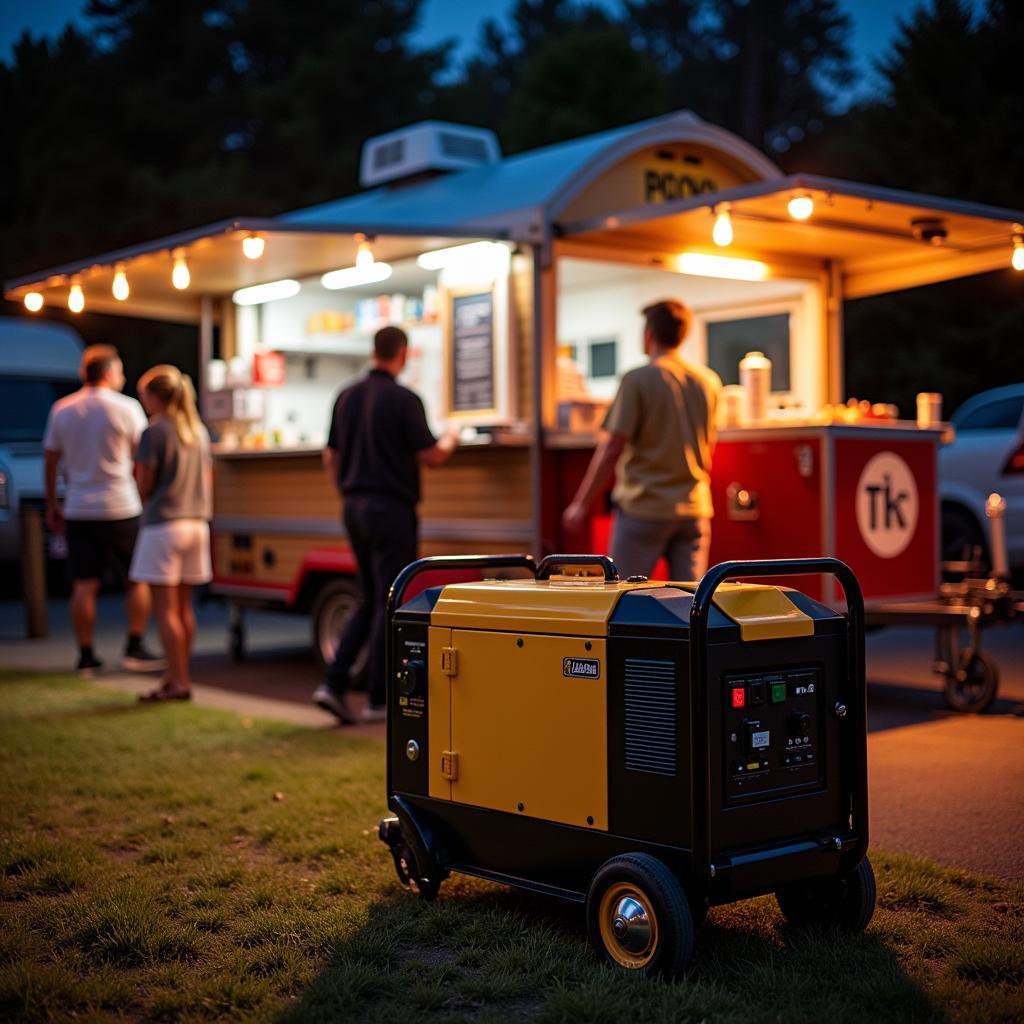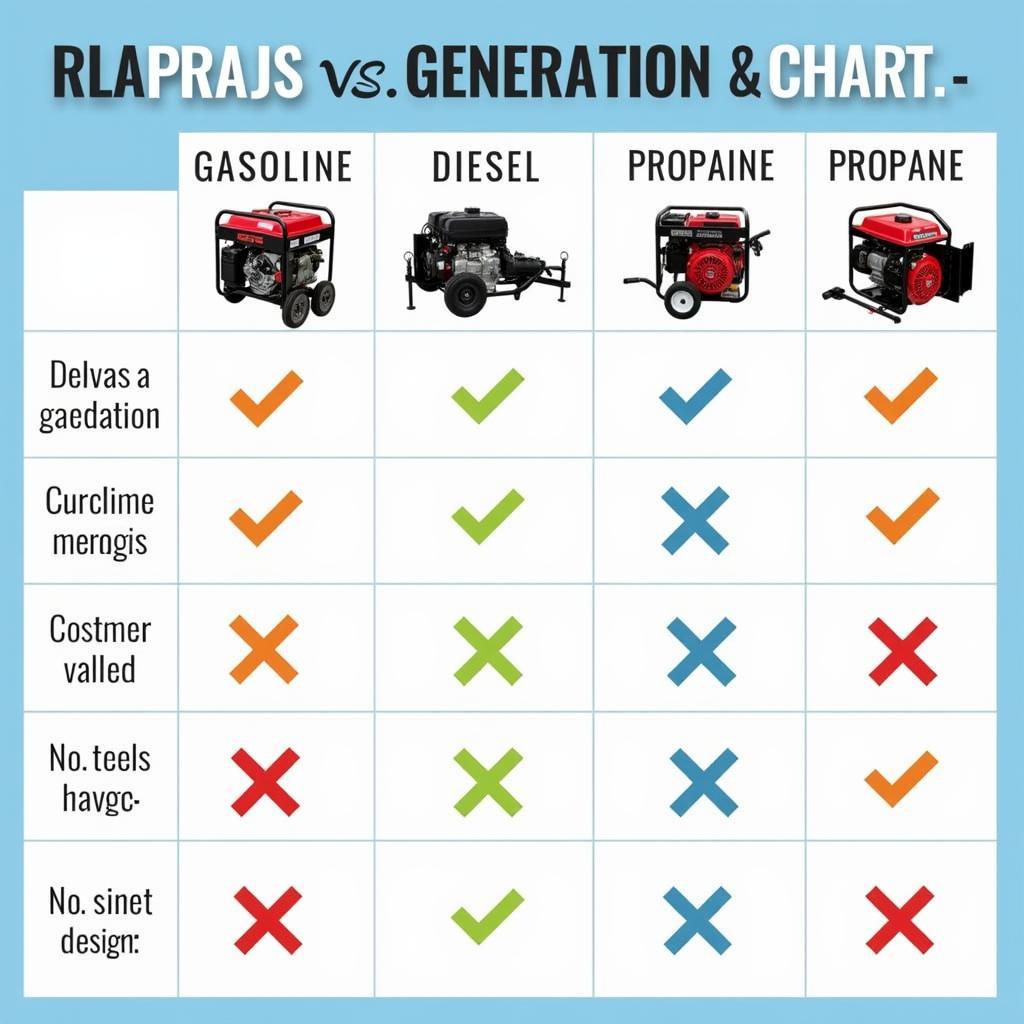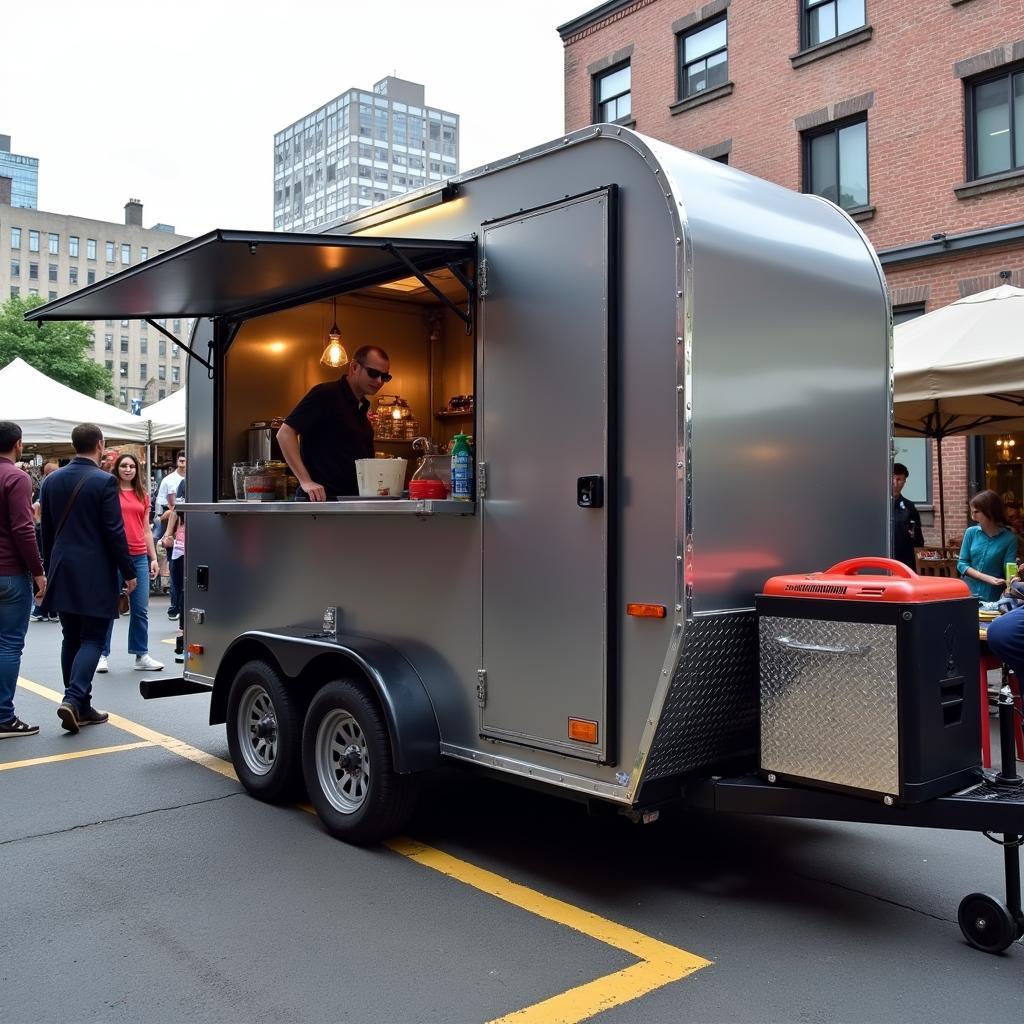Choosing the right generator for your food trailer can be the difference between a smooth service and a logistical nightmare. After all, without a reliable power source, your culinary dreams could turn into a cold, dark reality. But don’t worry, this guide is here to walk you through everything you need to know about selecting the perfect generator to keep your food trailer humming.
Why Your Food Trailer Needs a Generator
Before we dive into the nitty-gritty of generator specs, let’s cover the basics. Why are generators so crucial for food trailers in the first place?
- Powering Essential Appliances: From refrigerators keeping ingredients fresh to ovens baking your signature dishes, your food trailer relies on a constant power supply.
- Ensuring Food Safety: Maintaining proper food temperatures is non-negotiable. A generator ensures your cooling and heating equipment operates flawlessly, adhering to food safety standards.
- Flexibility & Freedom: A generator grants you the freedom to operate in various locations, regardless of access to grid power. This opens up opportunities at festivals, markets, and other off-grid events.
- Enhanced Professionalism: A reliable power source means less downtime and fewer service interruptions, showcasing your professionalism and commitment to your customers.
 Food Trailer Generator Powering Appliances
Food Trailer Generator Powering Appliances
Choosing the Right Generator: Key Considerations
Now that you understand the vital role of a generator, let’s explore the key factors to consider when choosing one for your food trailer:
1. Power Requirements: What’s Your Wattage?
The first step is determining your power needs.
- List Your Appliances: Create an inventory of all the electrical appliances you’ll be running simultaneously, noting their wattage. This might include your refrigerator, oven, grill, fryer, lighting, POS system, and ventilation fans.
- Calculate Total Wattage: Add up the wattage of all your appliances. This number represents your running wattage.
- Factor in Starting Wattage: Some appliances, like refrigerators and air conditioners, have a higher starting wattage which can be 2-3 times their running wattage.
- Safety Margin: It’s crucial to choose a generator that offers more wattage than your calculated needs. A 20-30% safety margin is recommended to prevent overloading and ensure smooth operation.
2. Fuel Type: Gas, Diesel, or Propane?
Generators typically run on gas, diesel, or propane. Each fuel type has pros and cons:
- Gasoline: Widely available and generally more affordable upfront. However, gas generators tend to be less fuel-efficient and have shorter lifespans compared to diesel.
- Diesel: Known for their fuel efficiency, longevity, and durability. However, diesel generators can be pricier initially and may require more maintenance.
- Propane: Propane burns cleaner than gas or diesel, making it a more environmentally friendly option. Propane generators also tend to be quieter. However, propane availability can be limited in some areas.
The best fuel type for you depends on factors like your budget, generator usage frequency, and fuel accessibility in your area.
 Comparing Generator Fuel Options
Comparing Generator Fuel Options
3. Single-Phase or Three-Phase Power:
Understanding the electrical requirements of your appliances is essential.
- Single-Phase: Most standard food trailer appliances run on single-phase power, commonly used in residential settings.
- Three-Phase: Larger, heavy-duty equipment like industrial ovens or walk-in freezers might require three-phase power, which delivers more power and is typically used in commercial settings.
Make sure your generator matches the power requirements of your appliances to avoid potential damage.
4. Inverter or Conventional Generator:
Generators come in two main types:
- Conventional Generators: These generators produce a constant stream of power at a fixed speed. They are generally more affordable but can be noisier and less fuel-efficient.
- Inverter Generators: These generators use advanced technology to produce cleaner, more stable power, making them ideal for sensitive electronics. Inverter generators are also quieter and more fuel-efficient but tend to be pricier.
 Food Trailer with Inverter Generator
Food Trailer with Inverter Generator
If you’re powering sensitive equipment or prioritize quiet operation, an inverter generator might be a worthy investment.
5. Size and Portability: Striking a Balance
Food trailers demand a balance between power and practicality. Consider the following:
- Physical Space: Measure the available space in your food trailer or designated storage area for the generator.
- Weight Restrictions: Be mindful of your food trailer’s towing capacity and any weight restrictions.
- Ease of Movement: Will you need to move the generator frequently? If so, portability features like wheels and handles are essential.
6. Noise Level: Keeping it Down
Operating in close proximity to customers requires minimizing noise pollution.
- Decibel Ratings: Check the generator’s decibel rating. Lower decibels indicate quieter operation.
- Noise Reduction Features: Some generators come equipped with mufflers or sound-dampening enclosures to minimize noise.
7. Safety Features: Protecting Your Investment
Safety should always be a top priority. Look for generators with these features:
- Automatic Shut-Off: This feature automatically shuts off the generator in case of low oil levels, overheating, or other potential hazards.
- Circuit Breakers: Circuit breakers protect your appliances from power surges.
- Carbon Monoxide Detectors: Essential for enclosed spaces, these detectors alert you to dangerous levels of carbon monoxide.
8. Budget and Long-Term Costs
Generators come in a wide price range. While it’s tempting to go for the cheapest option, remember to factor in long-term costs like:
- Fuel Consumption: Calculate estimated fuel costs based on your usage patterns.
- Maintenance: Regular maintenance like oil changes, filter replacements, and spark plug checks are essential.
Investing in a higher-quality generator might save you money on fuel and maintenance in the long run.
Expert Insights:
“Choosing the right generator can make or break your food trailer business,” says Chef Michael Thompson, owner of the popular food truck “Curbside Bites.” “Don’t underestimate your power needs. Invest in a reliable generator that can handle your peak demand and prioritize features like fuel efficiency and quiet operation. Your customers—and your bottom line—will thank you.”
Conclusion: Powering Your Culinary Success
Selecting the right generator is an important decision for any food trailer owner. By carefully considering your power needs, fuel type, size, noise level, safety features, and budget, you can find the perfect power solution to keep your mobile kitchen running smoothly. Remember, a reliable generator provides more than just electricity—it fuels your culinary dreams and empowers you to serve up deliciousness wherever your business takes you.
FAQs about Generators for Food Trailers:
1. How much does a generator for a food trailer cost?
Generator costs can range from a few hundred dollars for smaller, portable models to several thousand dollars for larger, more powerful units.
2. How long can you run a food trailer generator?
The run time of a generator depends on its fuel tank capacity and load. Some generators can run for 8-10 hours on a full tank, while others may require refueling more frequently.
3. Do food trucks need special generators?
While you can technically use any generator that meets your power needs, some generators are specifically designed for food trucks and trailers. These generators often prioritize features like quiet operation, fuel efficiency, and compact size.
4. What size generator do I need to run a refrigerator in a food trailer?
A typical refrigerator used in a food trailer might require a generator with a running wattage of 1,000-1,500 watts and a starting wattage of 2,000-3,000 watts.
5. Where can I buy a generator for my food trailer?
You can find generators for food trailers at home improvement stores, equipment suppliers, and online retailers specializing in generators.
6. Can I run my food trailer generator all night?
It’s generally not recommended to run a generator continuously throughout the night unless it’s specifically designed for extended operation. Continuous use can lead to overheating, increased wear and tear, and potential safety hazards.
7. How often should I service my food trailer generator?
It’s recommended to service your generator at least once a year or more frequently if you use it heavily. Regular maintenance includes oil changes, air filter cleaning or replacement, spark plug checks, and overall inspections.
Need More Help Choosing?
Choosing the perfect generator for your food trailer can be a big decision. For more information and personalized guidance, be sure to explore our other resources:
If you still have questions, don’t hesitate to contact us directly! Our team of food truck experts is here to help you every step of the way. You can reach us at:
Phone: 02437655121
Email: [email protected]
Or visit us at our location:
3PGH+8R9, ĐT70A, thôn Trung, Bắc Từ Liêm, Hà Nội, Việt Nam
We’re available 24/7 to assist you!